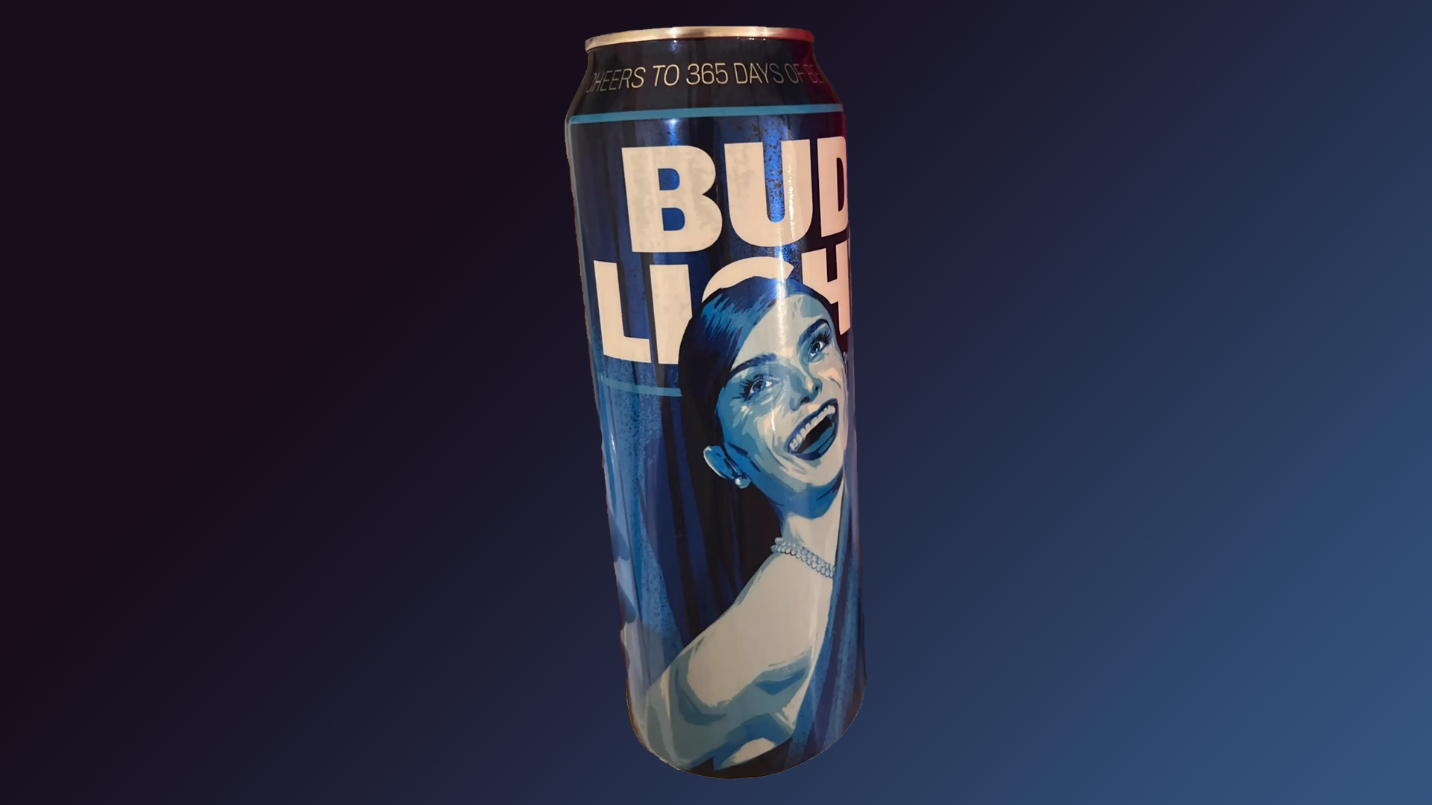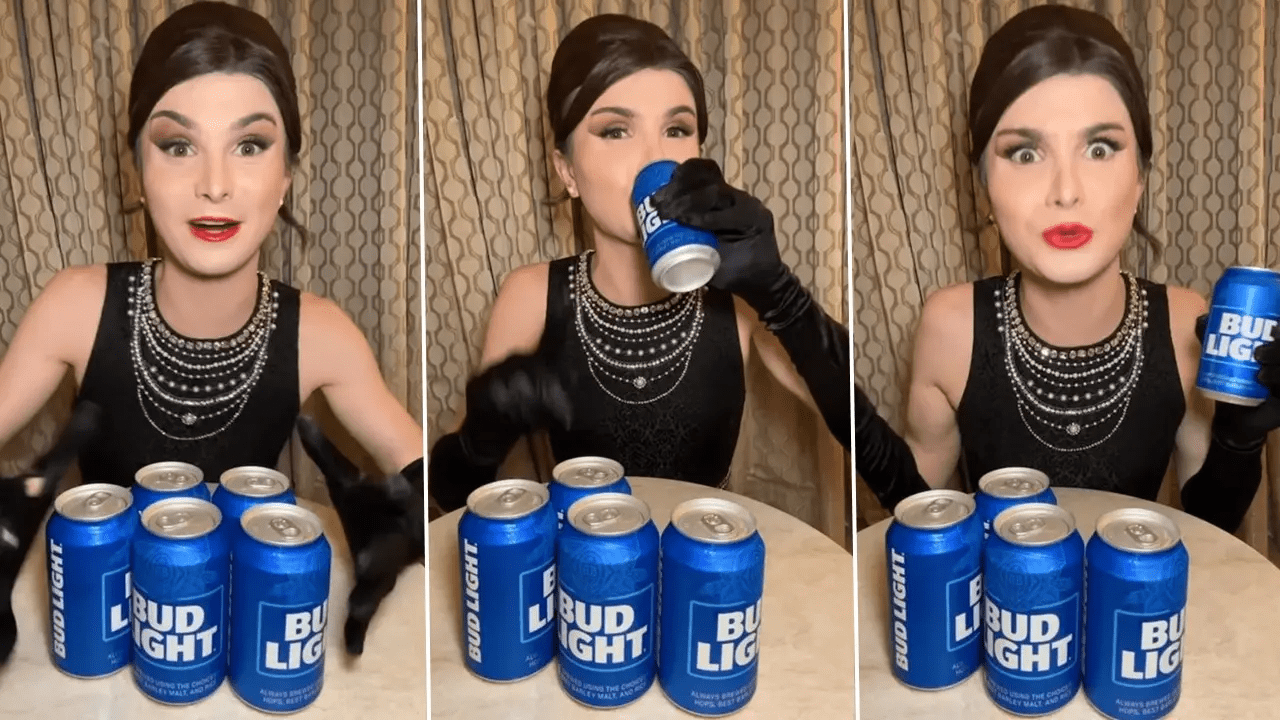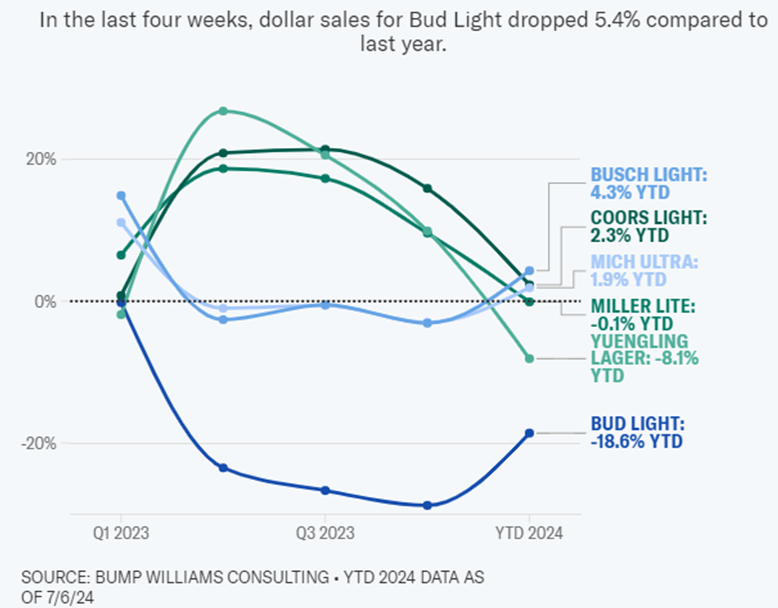The Bud Light Controversy: A Misstep in Brand Communication and Risk Management

Source: thedieline.com
What Happened?
In April 2023, Bud Light partnered with transgender actress Dylan Mulvaney, a social media influencer within the LGBT community. This campaign involved sending Mulvaney personalized beer cans to celebrate her “365 Days of Girlhood” journey on TikTok, which she promoted on her social media platforms. Mulvaney also promoted Bud Light’s March Madness contest, offering a chance to win $15,000. However, the campaign sparked backlash from consumers, leading to a boycott that severely damaged Bud Light’s brand image and resulted in a significant decline in sales.

Source: INSTAGRAM/@DYLANMULVANEY
Bud Light – A Brand Rooted in Family and Friendship
Bud Light’s marketing campaigns have traditionally focused on building strong connections with customers through joyful experiences shared with family, friends, and colleagues over a Bud Light, rather than emphasizing product features. The brand is often associated with American cultural symbols like the NFL and the Super Bowl, creating a sense of familiarity and community. Known for its “fratty” style, Bud Light has been a symbol of fun, light-hearted moments, and nostalgic memories. The majority of Bud Light’s customers are family-oriented individuals who value time spent with loved ones.
Here are some examples of Bud Light commercials:
A Misstep in Strategic Direction and Risk Management
The decision to partner with Dylan Mulvaney and send her personalized cans to celebrate her transition journey drew backlash from Bud Light’s conservative customer base when she shared them on TikTok, joking that she didn’t know what “March Madness” was. This sparked outrage among conservative customers who opposed the LGBT community, accusing the brand of pushing a “woke agenda.” The backlash led to boycotts and the destruction of Bud Light products.
The company’s response was widely criticized as weak. On April 10, Anheuser-Busch defended its partnership with Mulvaney, stating that it was “one of hundreds of ways” they interact with influencers to connect with consumers. However, less than five days later, Brendan Whitworth, CEO of Anheuser-Busch for the U.S. market, attempted to distance the brand from Mulvaney, stating that the personalized cans were not part of an official campaign. While this “retreat” might have seemed like the best short-term solution, in the long run, maintaining brand consistency and commitment to values is more beneficial for companies. Unfortunately, Bud Light failed to uphold its direction.

This controversy led to a significant decline in Bud Light's sales, a drop in Anheuser-Busch's stock price, with year-to-date (YTD) sales down by -18.6%, and internal company turmoil, making it difficult to restore the brand's reputation. The failure stems from a lack of thorough survey and market research processes.
Failure Stemming from Inadequate Market Research and Risk Assessment

• Disconnected from the core customer base
Bud Light’s attempt to follow a trend and attract support from the LGBT community highlighted the brand’s lack of awareness regarding the values of its existing customer base, who cherish traditional and family-oriented values. When the campaign’s message did not align with the beliefs of its core customers, it resulted in a backlash, leading to their alienation and departure from the brand that they once supported.
• Inadequate Risk Assessment
Bud Light failed to fully comprehend the values of its core conservative consumers while aiming to appeal to a younger, more diverse audience. They should have conducted in-depth target audience segmentation to understand values, beliefs, and attitudes towards social issues, revealing potential negative reactions from core consumers.
• Continuous Monitoring and Evaluation
As the controversy unfolded on both sides, Bud Light remained silent on social media. It wasn’t until two weeks after Mulvaney’s initial post that Anheuser-Busch’s CEO, Brendan Whitworth, issued the first public statement. However, this response was too little, too late. The lack of ongoing monitoring during the campaign allowed negative reactions to go unaddressed. Bud Light should have continuously monitored customer feedback and social media sentiment to quickly identify and manage any emerging backlash, ensuring the brand’s voice was heard over vague explanations or angry public discourse.
As Christopher Douglas, strategy manager at Billion Dollar Boy, stated, “The Bud Light campaign simply highlights the value of thorough research and surveys.” This serves as a clear reminder of the importance of market research in understanding consumer sentiment, recognizing the values of existing customers, assessing potential risks, and predicting the impact of marketing campaigns. The lack of thorough market research led to a strong backlash, financial losses, and damage to Bud Light’s brand reputation.





